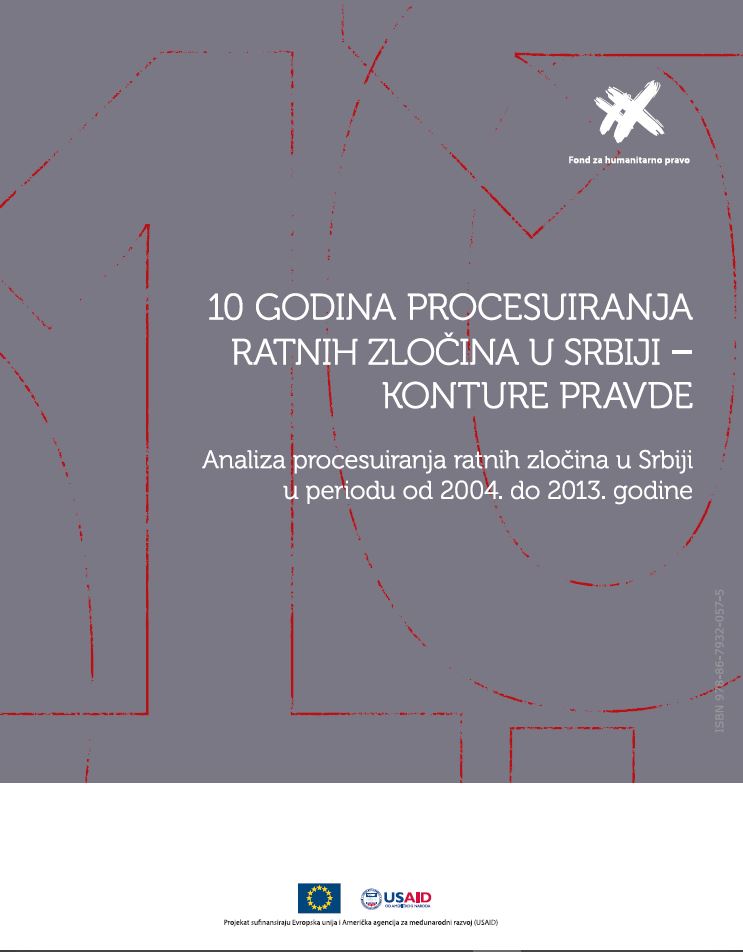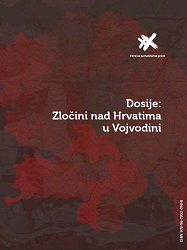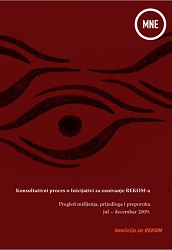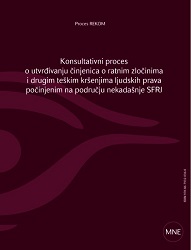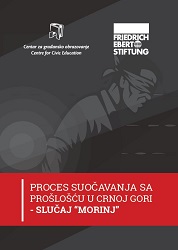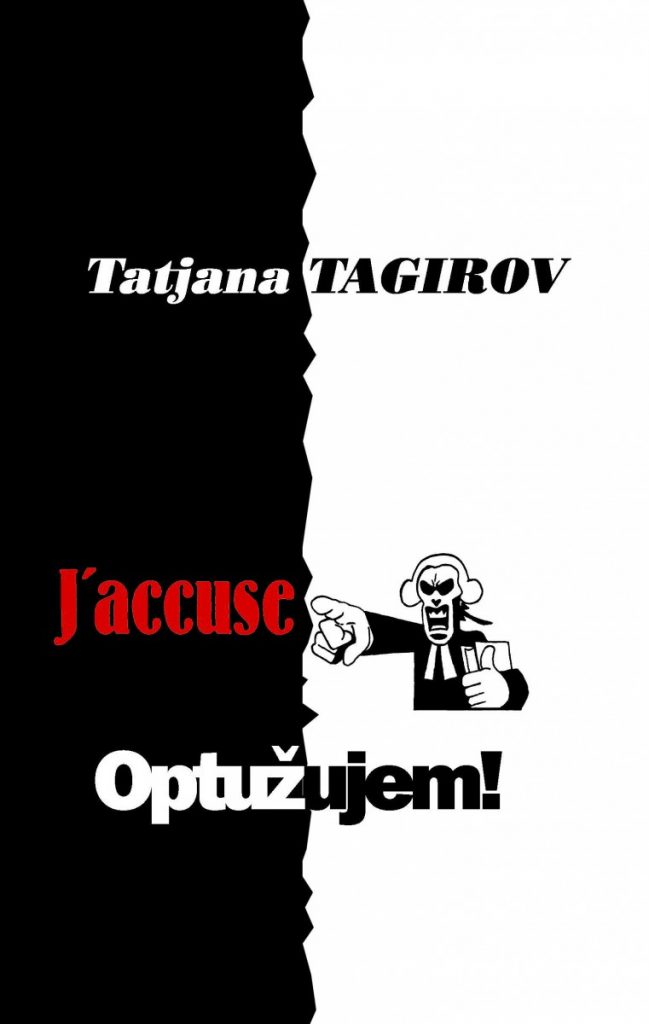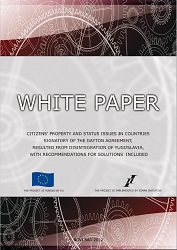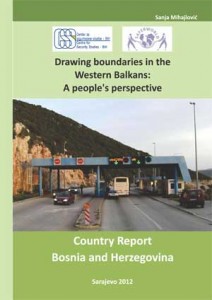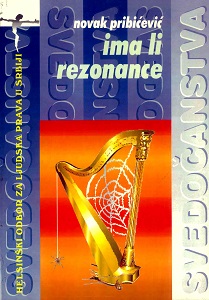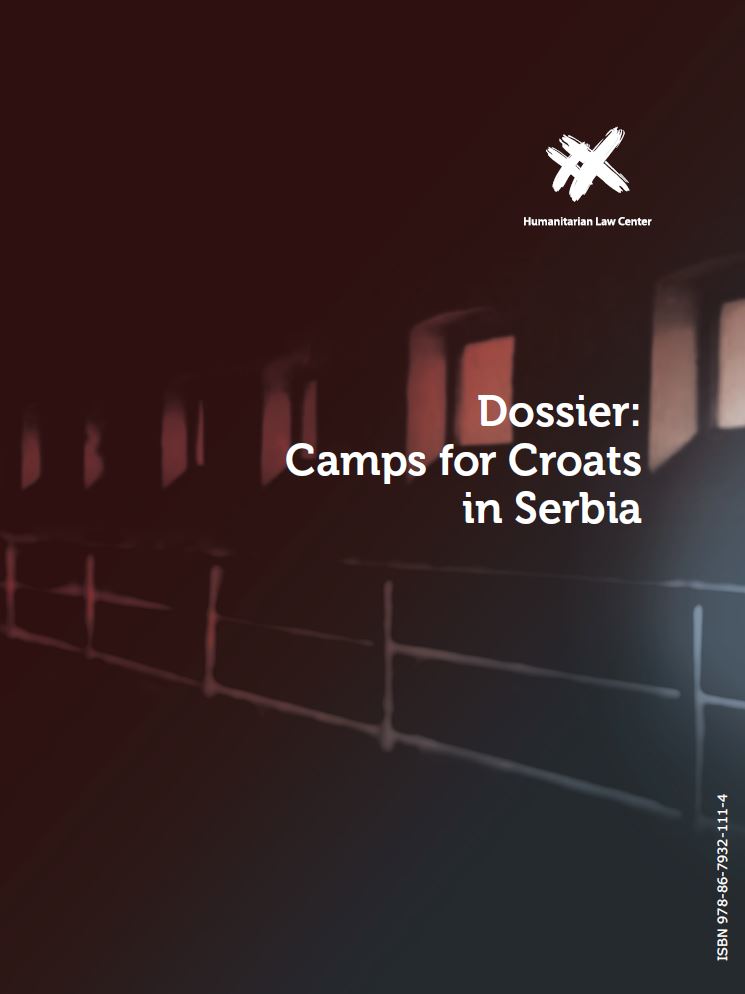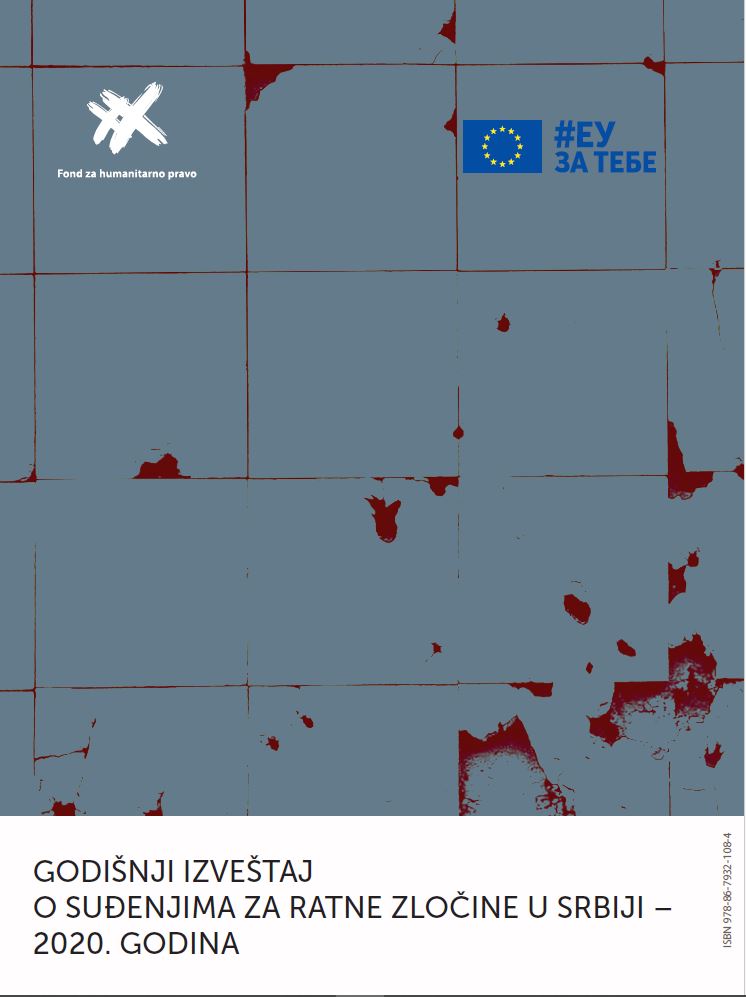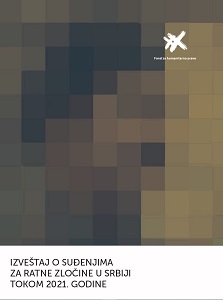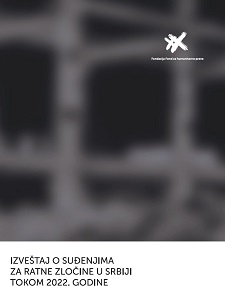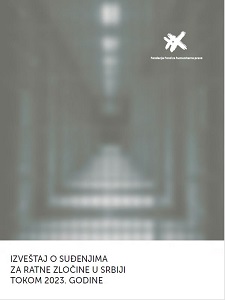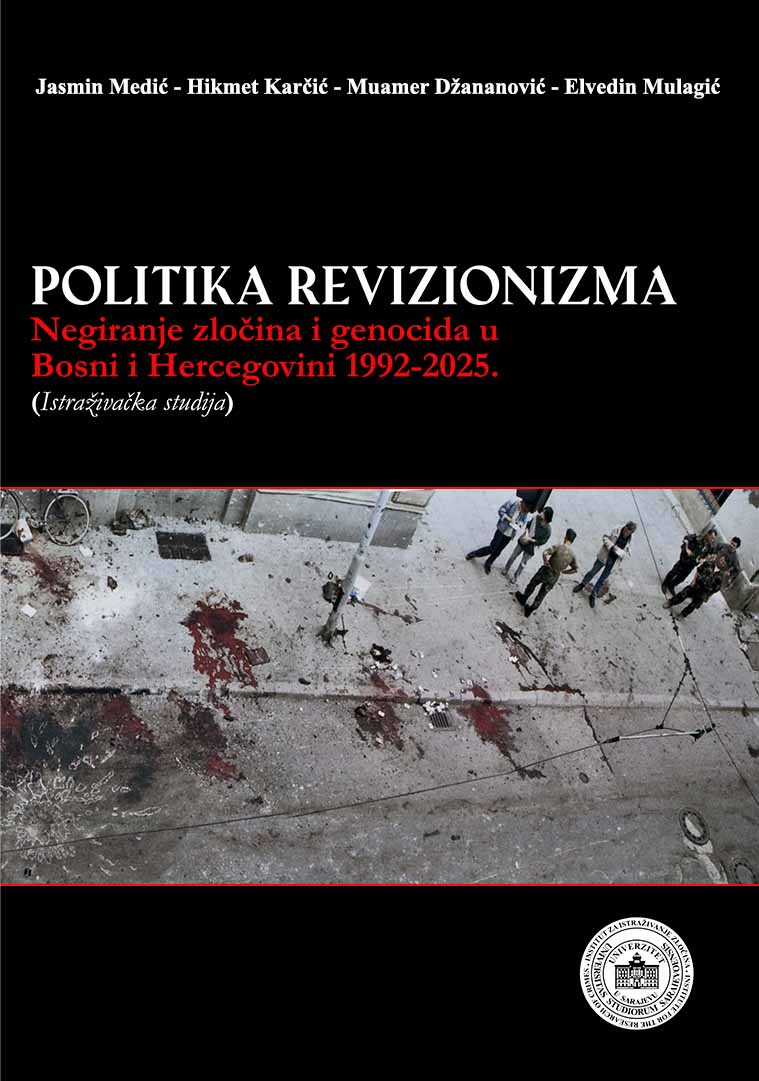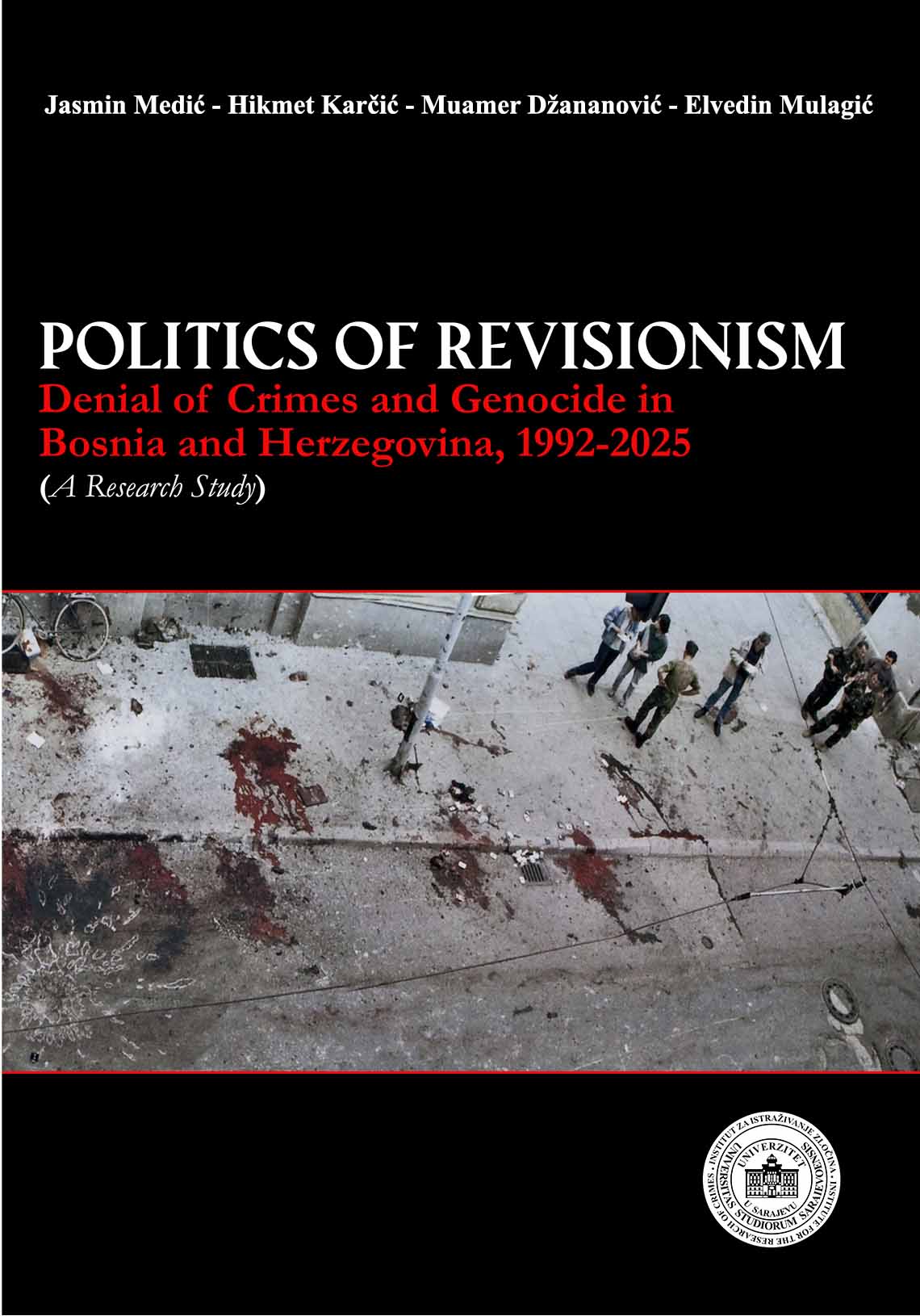Author(s): / Language(s): Montenegrine
Suočavanje sa prošlošću je neophodan i nezaobilazan preduslov izgradnje građanskog društva. Bez mogućnosti da osjetimo patnju žrtava i izborimo se za pravdu, šanse da izgrađujemo otvoreno društvo zasnovano na poštovanju ljudskih prava sa funkcionalnom demokratijom su značajno ograničene. Više od dvije decenije traje mučna i neizvjesna borba za otkrivanje i procesuiranje počinilaca ratnih zločina na prostorima bivše Jugoslavije. Crna Gora ima dodatno opterećenje da taj proces izvede adekvatno do kraja. Naime, u Crnoj Gori su mnogi koji su bili involvirani, po raznim osnovama, u ratna dešavanja devedesetih godina prošlog vijeka i danas na pozicijama donosioca odluka sa mogućnošću da utiču na opstrukciju istražnih radnji i sudskog procesa. Procesuiranje ratnih zločina postalo je i dio obaveza u okviru Poglavlja 23 – Pravosuđe i temeljna prava, a posljednji Izvještaj o napretku Crne Gore za 2014.godinu, koji je sačinila Evropska komisija, jasno poručuje “Crna Gora mora da osnaži svoje napore u borbi protiv nekažnjivosti ratnih zločina, i da efikasno istražuje, procesuira i kažnjava ratne zločine u skladu sa međunarodnima standardima. Svi važni navodi o ratnim zločinima moraju da se sa dužnom pažnjom isprate.” Upravo u cilju osnaživanja napora u suočavanju sa prošlošću i ohrabrenja daljeg otvaranja i adekvatnog vođenja procesa za ratne zločine u Crnoj Gori, Centar za građansko obrazovanje (CGO) je odlučio da pokrene ediciju u kojoj će publikovati materijale iz sudskih spisa koji se odnose na procesuiranje ratnih zločina. Obiman materijal iz slučaja “Morinj” je osnova za konkretan doprinos društvenoj debati i multidisciplinarnom sagledavanju uzroka i posljedica ovog slučaja koji ima ogroman društveni značaj za Crnu Goru i njeno suočavanje sa prošlošću, jer predstavlja jedini predmet koji se odnosi na ratne zločine koji utvđuje odgovornost Crne Gore, tj. državljana Crne Gore. Crnogorsko društvo ne može biti do kraja zadovoljno epilogom procesa, ali je činjenica da je postupak pred sudom najprihvatljiviji način utvrđivanja istine o ratnim zločinima. CGO se, kroz publikaciju odluka pravosuđa u slučaju “Morinj”, vodio nezaobilaznim principom u suočavanja sa prošlošću: “sve pred lice javnosti”. Stoga, publikacija daje presjek toka postupka i integralnu autentičnu građu stvorenu pred crnogorskim pravosuđem, koja će omogućiti njihovo analiziranje kao potreban doprinos izgradnji i društvenih i pravosudnih kapaciteta u Crnoj Gori. Važno je istaći ulogu nevladinih organizacija koje prepoznaju značaj procesa suočavanja sa prošlošću, kao i regionalne saradnje u osnaživanju kapaciteta za dolaženje do činjenica o ratnim zločinima. Nevladina organizacija Akcija za ljudska prava iz Podgorice u kontinuitetu obrađuje slučajeve ratnih zločina koji su se našli pred crnogorskim pravosuđem, što je i CGO-u prilikom izrade ove publikacije bilo od velike pomoći. Takođe, Centar za suočavanje sa prošlošću - Dokumenta iz Zagreba, koji u okviru svojih stalnih programa ima komunikaciju sa žrtvama iz logora “Morinj” , bio je značajan partner CGO-u u dijelu prepoznavanja interesa za objavljivanje ovakvog materijala i njegove afirmacije u Hrvatskoj. Sam postupak za ratni zločun u logoru Morinj pred crnogorskim pravosuđem počinje podizanjem optužnice od strane Odjeljenja za suzbijanje organizovanog kriminala, korupcije, terorizma i ratnih zločina Vrhovnog državnog tužilaštva KtS.br.7/08 od 15. 08. 2008.godine, protiv šestorice bivših pripadnika rezervnog sastava Jugoslovenske narodne armije (JNA) koja se dostavlja Višem sudu u Podgorici, sa predlogom za određivanje pritvora. Međutim, treba podsjetiti da je postupak iniciran ne iz Crne Gore, već od strane Hrvatske, odnosno Državnog odvjetništva Republike Hrvatske (DORH) koje je krajem marta 2007.godine dostavilo Vrhovnom državnom tužiocu Crne Gore dokazni materijal protiv desetorice državljana Crne Gore, osumnjičenih da su počinili ratne zločine protiv civila i ratnih zarobljenika u Morinju u periodu od 3. oktobra 1991. do 2. jula 1992. godine. U procesu koji slijedi, Viši sud u Podgorici, donosi presudu K.br.214/08 od 15.05.2010.godine, protiv koje Vrhovno državno tužilaštvo ulaže žalbu, kao i optuženi i njihovi braniloci. Apelacioni sud Crne Gore rješenjem Ksž.br. 20/10 usvaja žalbu, ukida presudu Višeg suda K.br.214/08 i predmet vraćen prvostepenom sudu na ponovno suđenje. Zatim, Viši sud u Podgorici, u ponovljenom postupku, donosi presudu K.br. 33/10 od 25.01.2012. godine, na koju Vrhovni državni tužilac podnosi Žalbu KtS. Br. 7/08 od 06.03.2012.godine protiv presude Ks.br. 33/10 od 25.01.2012.godine, kao i branioci optuženih. Apelacioni sud donosi presudu Kžs.br.24/12, od 06.07.2012.godine, kojom odbija kao neosnovanu žalbu VDT-a, prihvata žalbu optuženih i ukida presudu Višeg suda u Podgorici K.br. 33/10 u osuđujućem dijelu i u tom dijelu vraća predmet prvostepenom sudu na ponovno suđenje. Nakon toga, Viši sud u Podgorici, donosi presudu Ks.br. 19/12 od 31.07.2013.godine, na koju tužilaštvo podnosi žalbu KTS. Br. 7/08 od 02.10.2013.godine. Apelacioni sud Crne Gore, donosi presudu Kž-S.br.44/13, od 27.02.2014.godinu, kojom se potvrđuje presuda Višeg suda u Podgorici Ks.br. 19/12 i time se pravosnažno okončava postupak za ratne zločine u slučaju “Morinj”. Trenutno se vode postupci za utvrđivanje odštetnih zahtjeva žrtava, koje je pokrenulo više od 150 bivših logoraša, pri čemu postoje ozbiljni problemi u utvrđivanju visine iznos tih zahtjeva što će se, jedinim dijelom, vjerovatno završiti bilateralnim razgovorima Hrvatske i Crne Gore i primjenom regionalnih i evropskih najboljih praksi. Punih šest godina trajao je postupak pred crnogorskim pravosuđem, koji je izazvao naglašeno različite reakcije zainteresovanih strana. Ova publikacija je samo jedan od načina da se doprinese proširivanju baze podataka o ratnim zločinima i materijalizaciji sjećanja neophodnoj da bi proces suočavanja sa prošlošću mogao da ima potrebne efekte, ali i pokušaj da se preveniraju neke od grešaka kroz naučene lekcije.
More...
